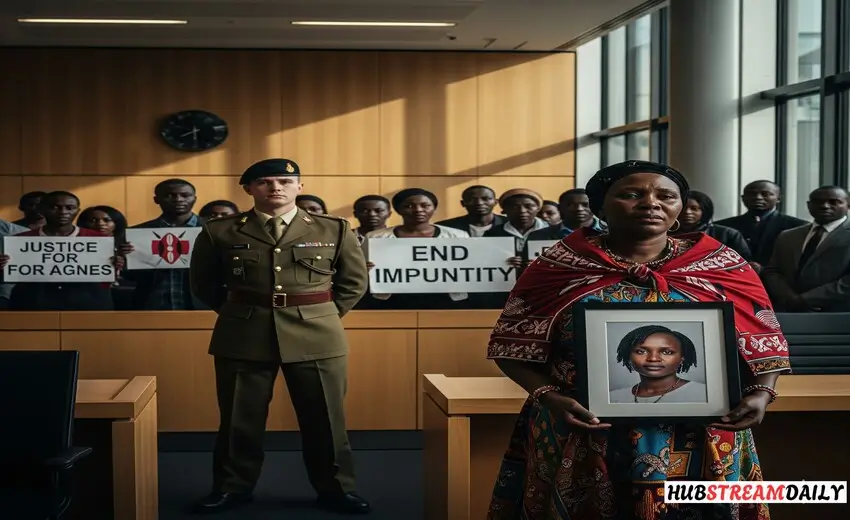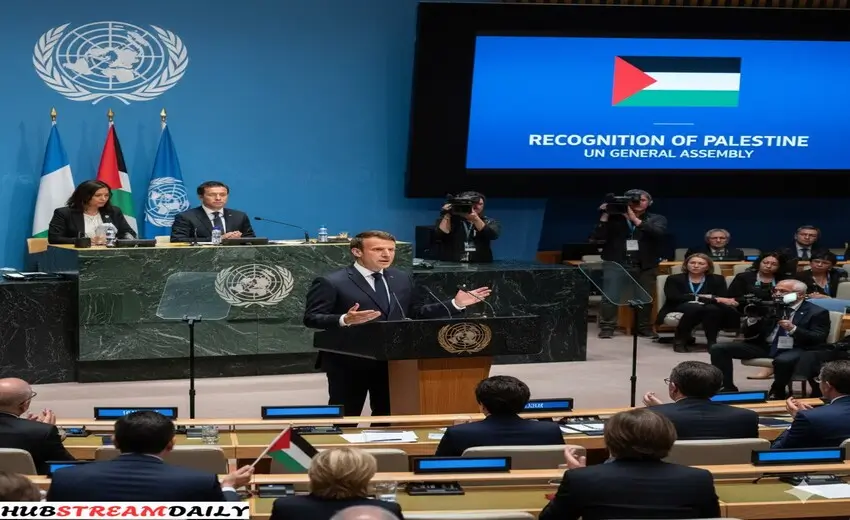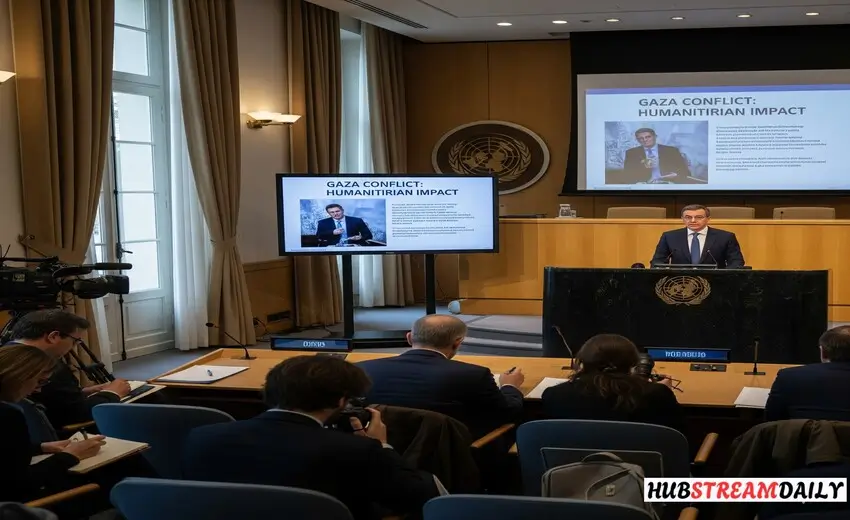
Nairobi, Kenya — More than a decade after the mysterious death of a young Kenyan woman, justice may finally be catching up with those suspected of involvement. The Government of Kenya has formally sought the arrest of a former British soldier accused of murdering Agnes Wanjiru, a 21-year-old woman whose body was discovered in a septic tank near a hotel in Nanyuki in 2012.
The case, which has long haunted both Kenya and the United Kingdom, has resurfaced with renewed intensity, putting pressure on authorities in both nations to deliver accountability in an incident that many Kenyans view as symbolic of a deeper pattern of injustice.
Who Was Agnes Wanjiru?
Agnes Wanjiru was a young mother from Nanyuki, a town located near a major British Army Training Unit in Kenya (BATUK). Known by locals as “Aggie,” she struggled with financial hardships but was remembered by friends as warm, lively, and full of dreams for her young daughter.
On the night of her disappearance in March 2012, Wanjiru was last seen with British soldiers at a local hotel where troops often mingled with residents. Days later, her partially decomposed body was discovered in a septic tank behind the same hotel. Post-mortem reports indicated she had been stabbed and may have suffered blunt-force trauma.
The Alleged Cover-Up
For years, Wanjiru’s death appeared buried beneath layers of silence, secrecy, and international bureaucracy. Initial investigations pointed to the involvement of at least one British soldier. However, despite strong suspicions and even confessions reported among fellow soldiers, the case went cold.
In 2021, The Sunday Times of the UK published explosive claims: British soldiers allegedly joked about the murder in their barracks, with one soldier openly naming a colleague as the killer. According to reports, another soldier later revealed that their superiors had been informed but failed to act, raising accusations of a deliberate cover-up.
The revelations sparked outrage in Kenya, with Wanjiru’s family demanding justice and rights groups accusing both the Kenyan and British governments of treating the young woman’s life as disposable.
Kenya’s Renewed Push for Justice
This year, Kenyan authorities escalated the matter by formally seeking the arrest of the former British soldier alleged to be directly responsible for Wanjiru’s murder. The Office of the Director of Public Prosecutions (ODPP) confirmed that sufficient evidence exists to charge the suspect, and international cooperation is now being sought through extradition requests.
“This is not only about justice for Agnes Wanjiru,” said a senior Kenyan prosecutor in Nairobi. “It is about ensuring that foreign soldiers, or any foreign nationals, cannot commit crimes on our soil and walk away without accountability.”
The Kenyan government has also hinted at reviewing military agreements with the UK to ensure future incidents involving foreign troops do not escape local justice systems.
The British Army’s Shadow in Kenya
The British Army Training Unit in Kenya (BATUK) has operated in Laikipia County for decades, training thousands of soldiers each year. While the presence of BATUK has boosted the local economy and created jobs, it has also sparked numerous controversies.
Over the years, locals have accused British troops of environmental damage, land disputes, and incidents of violence. The Wanjiru case, however, stands out as the most explosive and damaging allegation. For many Kenyans, it represents a grim reminder of unequal power dynamics between the UK and its former colony.
Rights groups argue that the Kenyan government has often been too soft in confronting abuses linked to BATUK, fearing diplomatic or economic fallout. But as public anger swells, pressure is mounting on officials to act decisively.
Wanjiru’s Family Speaks Out
For Wanjiru’s relatives, the renewed push for justice is bittersweet. Her daughter, who was only five months old at the time of her mother’s death, is now a teenager being raised by relatives.
“We have waited for too long,” said Rose, Wanjiru’s sister, in an interview with local media. “Agnes was a human being, a mother, a sister, a daughter. For 12 years we have lived with pain, while those who killed her walked free. We want justice not only for Agnes but for her child.”
Family members have also criticized both governments for what they see as indifference to their suffering. Some accuse Kenyan authorities of dragging their feet in order to protect diplomatic ties, while accusing the UK of ignoring its responsibility to hand over suspects.
Diplomatic Tensions Rise
The extradition request is expected to test the diplomatic relationship between Kenya and the UK. The suspect, whose identity has been protected in British media due to legal reasons, is believed to no longer serve in the army but resides in the UK.
The British Ministry of Defense has stated that it is cooperating with Kenyan authorities and that it takes allegations of criminal conduct by its soldiers seriously. However, legal experts warn that extradition may face hurdles, particularly if the UK government argues that its courts should handle the case instead.
Observers note that how the UK responds will be closely watched across Africa, where former colonial powers are increasingly under scrutiny for historical and present-day injustices.
Human Rights Advocates Demand Accountability
Human rights organizations in Kenya and the UK have united in demanding transparency and justice. Amnesty International Kenya issued a statement calling the Wanjiru case “a litmus test for the credibility of both governments in upholding human rights and the rule of law.”
“This case symbolizes how women in vulnerable communities can become invisible victims of powerful institutions,” said a representative of the Kenya Human Rights Commission. “We are determined that Agnes Wanjiru’s story will not be silenced.”
Activists also argue that the issue extends beyond one murder case, pointing to the systemic challenges of holding foreign troops accountable in host nations. They call for reforms in how military agreements are structured, with stronger legal safeguards for local populations.
Public Outrage and Social Media Campaigns
Since the latest extradition news broke, Kenyans have flooded social media platforms with messages demanding justice. Hashtags such as #JusticeForAgnes and #AgnesWanjiru have trended nationwide, amplifying the family’s call for closure.
Public figures, including Kenyan lawmakers and celebrities, have joined the conversation. Some argue that failing to resolve the case could fuel resentment toward foreign military presence in the country. Others see it as a broader fight against impunity in Kenya’s justice system.
A Test for Kenya’s Justice System
The case comes at a time when Kenya’s judiciary is under growing public scrutiny over corruption, delays, and political interference. By pushing aggressively for Wanjiru’s case, Kenyan prosecutors hope to restore faith in the system.
Legal experts caution, however, that the road ahead will be complex. Extradition treaties, diplomatic negotiations, and questions of jurisdiction may drag the process out further. Yet, with international attention fixed on the case, authorities may have little choice but to press forward.
Why This Case Matters
The story of Agnes Wanjiru is not only about a tragic murder but also about justice, sovereignty, and dignity. For Kenya, it is a chance to demonstrate that no one—regardless of nationality or military rank—can be above the law.
For the UK, it is a moment to show whether its commitments to human rights extend beyond rhetoric. How it handles the extradition request may define future relations not only with Kenya but with other nations where its troops operate.
Most importantly, for Wanjiru’s daughter and family, the case represents a final hope that truth will prevail and justice will bring closure to years of unanswered questions.
At Last, Twelve years after Agnes Wanjiru’s life was brutally cut short, her name continues to echo in Kenya and beyond. Her story has become a rallying cry for justice, accountability, and the value of human life against the weight of powerful institutions.
As Kenya seeks the arrest of the former British soldier suspected of her murder, the world watches closely. Will justice for Agnes finally be delivered, or will her case join the long list of unresolved tragedies that haunt the corridors of international law?
One thing remains clear: Agnes Wanjiru’s voice, though silenced, continues to demand justice. And this time, the world is listening.




